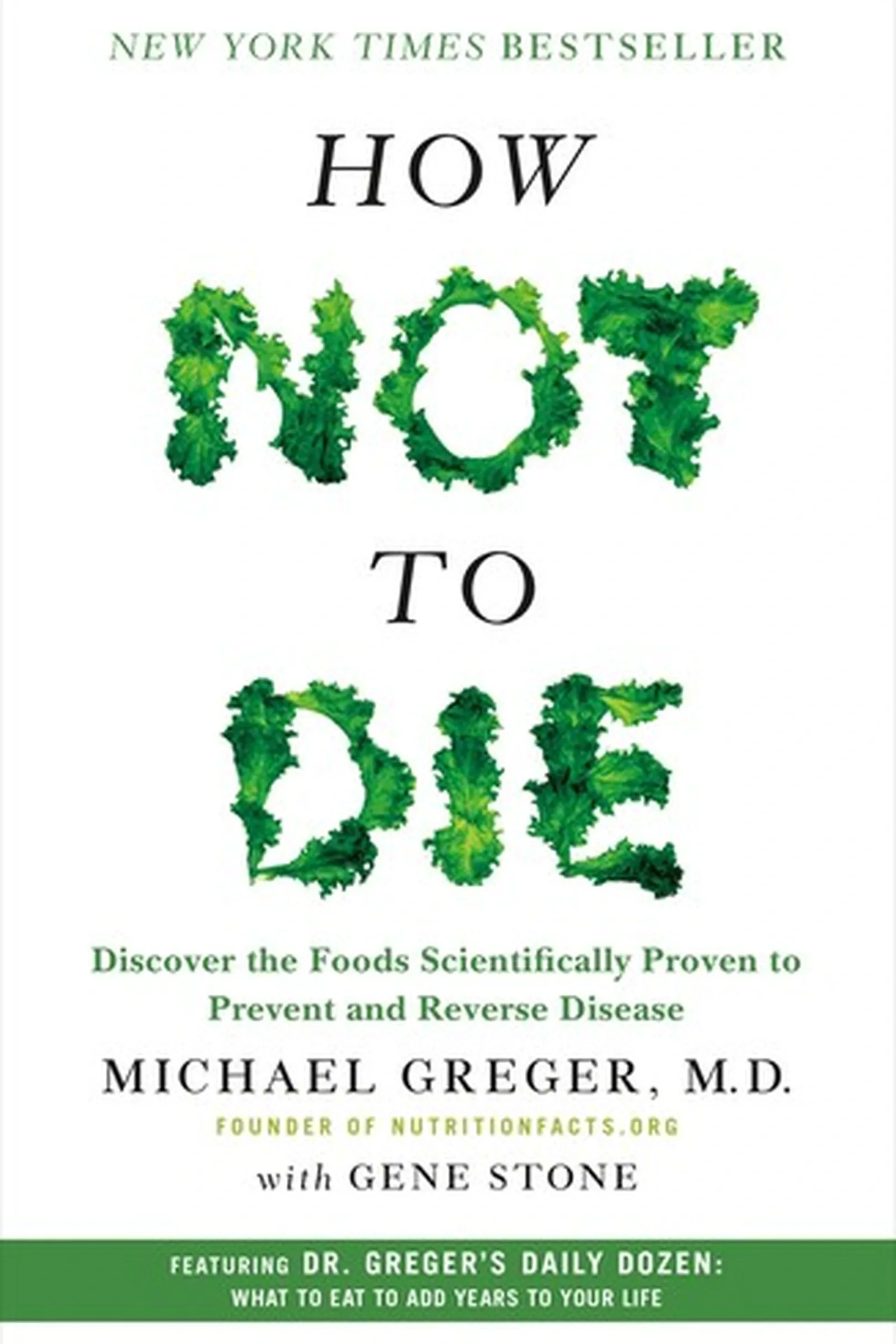How Not to Die, Michael Greger, 2015
- Author: Michael Greger
- Genre: BioMedicine
- Publisher: Flatiron Books
- Publication Year: 2015
- Pages: 576
- Format: Paperback
- Language: English
- ISBN: 978-1250066110
- Rating: 4,0 ★★★★☆
How Not to Die Review
About
Published in 2015, Dr. Michael Greger’s How Not to Die is both a science-based guide to nutrition and a manifesto for preventive medicine. Drawing on decades of research, Greger examines the leading causes of premature death—heart disease, cancer, diabetes, and more—and shows how dietary changes can dramatically reduce risk. The book is practical, evidence-driven, and optimistic, challenging the idea that chronic illness is inevitable. It’s not a miracle cure—it’s a user manual for the human body written by someone who’s read the fine print.
Overview
The book is divided into two main parts. The first half examines the top fifteen causes of death and the scientific evidence behind how diet and lifestyle affect each. The second half presents Dr. Greger’s “Daily Dozen,” a checklist of foods and habits—like beans, berries, cruciferous vegetables, exercise, and hydration—that support long-term health. Rather than relying on fad diets or supplements, Greger advocates for a whole-food, plant-based diet, supported by clear data and delivered with his characteristic humor and accessibility.
Summary
(light spoilers) Greger combines data with storytelling, describing patients who reversed chronic conditions through simple lifestyle adjustments. Each chapter follows a pattern: the cause of a disease, the science of its progression, and the evidence that plant-based nutrition can prevent or even reverse it. He addresses skepticism directly, citing peer-reviewed studies and making complex biochemistry understandable. The “Daily Dozen” at the end is not a prescription but an invitation—a flexible way to integrate small, cumulative changes into daily life. The takeaway: medicine can treat disease, but food can often prevent it.
Key Themes / Main Ideas
• Prevention over prescription — health built meal by meal.
• Evidence-based living — science as empowerment, not dogma.
• Simplicity — small consistent habits outweigh radical diets.
• Food as medicine — nutrition as the body’s quiet defense system.
• Responsibility — health as an active, daily choice.
Strengths and Weaknesses
• Strengths — Deeply researched yet approachable; Greger’s enthusiasm makes nutrition feel empowering.
• Strengths — Practical structure encourages real-life application.
• Weaknesses — Dense with citations; casual readers may find it heavy on data.
• Weaknesses — Strong bias toward plant-based ideology can feel prescriptive to those seeking balance.
Reviewed with focus on themes, audience, and takeaways — Michael Greger
| pa_author | Michael Greger |
|---|---|
| ISBN | 978-6-735-33671-3 |
| pa_year | 2012 |
| Pages | 396 |
| Language | English |







